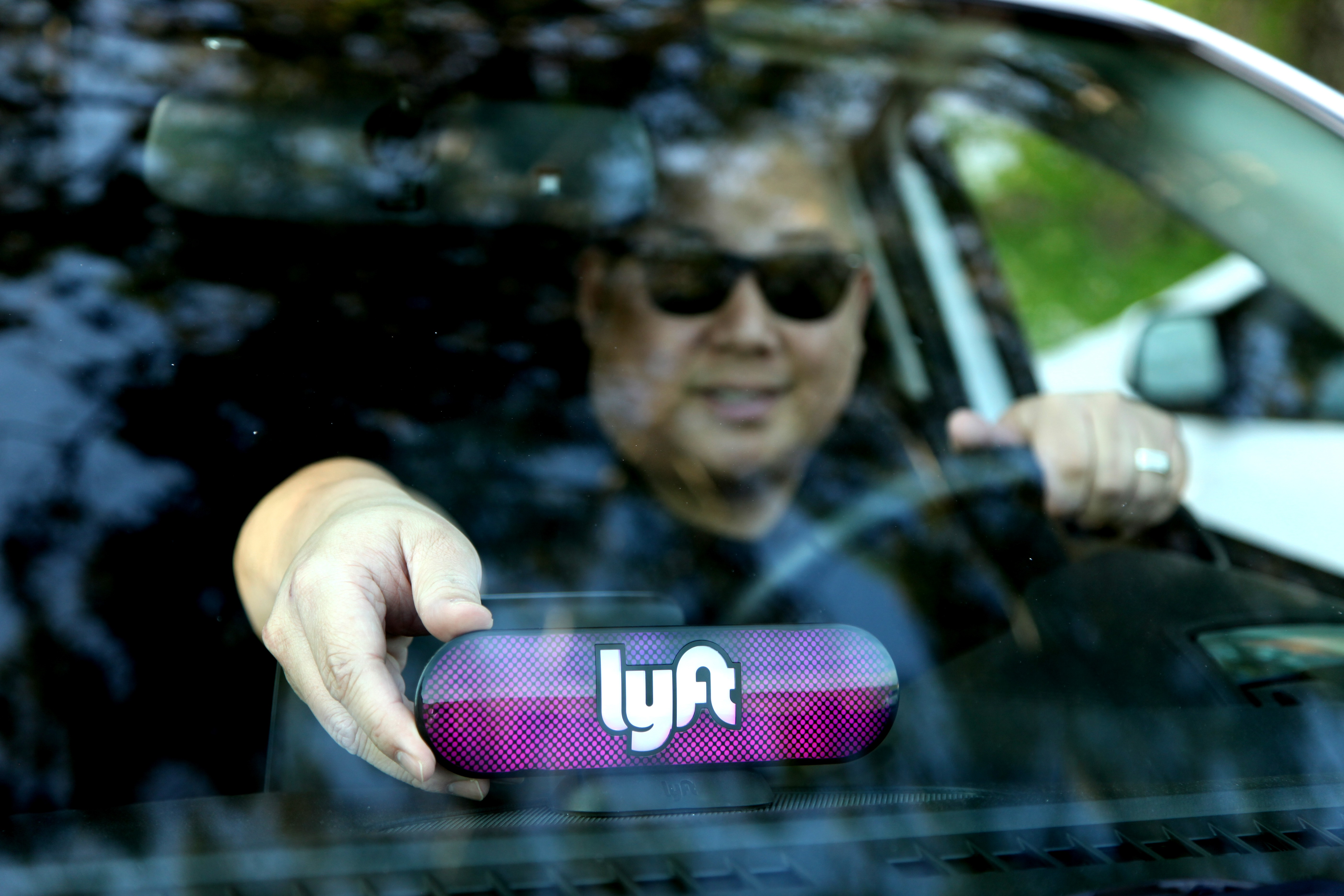Lyft: Giant hopes, giant losses
The smartest insight and analysis on the ride-hailing company, rounded up from around the web

A free daily email with the biggest news stories of the day – and the best features from TheWeek.com
You are now subscribed
Your newsletter sign-up was successful
The smartest insight and analysis, from all perspectives, rounded up from around the web:
Lyft has taken the lead in the race against its bigger ride-hailing rival, Uber, to go public, said Maureen Farrell at The Wall Street Journal. By unveiling the prospectus for its initial public offering last week, the 7-year-old startup finally gave investors a chance to see "just how burgeoning the business of ride-hailing apps has become." Lyft's growth is eye-catching. Revenues leaped to $2.16 billion in 2018 from $1.06 billion the year before, and the company says its share of the American market grew to 39 percent — gaining ground on Uber, which is more focused on growth outside the U.S. Lyft's total market value after an IPO is widely expected to exceed the $15 billion value investors put on the company in its last private round of financing, though it would still be a fraction of Uber's projected valuation.
One number that stood out from Lyft's prospectus is a $911 million net loss in 2018, said Dan Primack at Axios. It's the largest ever for a company entering the public markets for the first time. And it represents a "massive hurdle," given there is no path to profitability. "Uber once said its ride-hail efforts were profitable" in North America, but it hasn't reaffirmed the claim lately. And Lyft keeps losing money at a staggering rate. So what guarantees that "ride-hail is actually a viable business?" It's reasonable to wonder whether demand will ever be much greater, said Shira Ovide at Bloomberg. "Optimists can point to the growth rate," but there's plenty to remain pessimistic about. For one thing, "Lyft's costs for items like insurance, credit-card payments, and expenses" on technology eat up more than half the revenues. Lyft doesn't have to produce a physical product, "yet has the gross margins of a clothing retailer."
The Week
Escape your echo chamber. Get the facts behind the news, plus analysis from multiple perspectives.

Sign up for The Week's Free Newsletters
From our morning news briefing to a weekly Good News Newsletter, get the best of The Week delivered directly to your inbox.
From our morning news briefing to a weekly Good News Newsletter, get the best of The Week delivered directly to your inbox.
Paying drivers is the biggest expense for ride-hailing companies, said Ashley Nunes at USA Today — close to $6 billion for Lyft in 2018. "Driverless technology" promises to wipe this cost off the books, and both Uber and Lyft are investing heavily in it. But it comes with caveats. Until the systems prove to be flawless, paid drivers will be needed for supervision even of autonomous cars. "Driverless does not mean humanless." Already, Lyft's timescale for autonomy has taken a step back, said The Economist. In September 2016, Lyft's president and co-founder, John Zimmer, said the majority of Lyft's rides would be made by self-driving vehicles within five years. The prospectus moves the goalposts and now says that's still 10 years away.
Unprecedented legal and political uncertainties remain for the ride-hailing apps, said Cat Zakrzewski at The Washington Post. Lyft is already actively grappling with lawsuits challenging its classification of drivers as independent contractors, not employees, and notes in its filing that a change to the worker classification law could be costly. It's making big bets on scooters and bikes, even though local officials across the country have been raising concerns about safety. And there is increased scrutiny of the data-handling practices of major tech companies. "Data privacy laws could adversely affect its business" and create new costs. For years, private investors have assumed the risks of rapidly shifting laws and regulations. Now public investors will be exposed, too.
A free daily email with the biggest news stories of the day – and the best features from TheWeek.com
-
 The 8 best TV shows of the 1960s
The 8 best TV shows of the 1960sThe standout shows of this decade take viewers from outer space to the Wild West
-
 Microdramas are booming
Microdramas are boomingUnder the radar Scroll to watch a whole movie
-
 The Olympic timekeepers keeping the Games on track
The Olympic timekeepers keeping the Games on trackUnder the Radar Swiss watchmaking giant Omega has been at the finish line of every Olympic Games for nearly 100 years